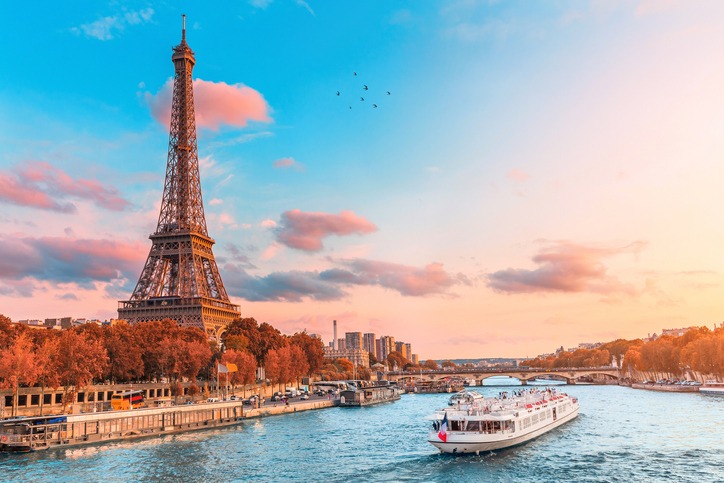Traveling leaves you speechless, then turns you into a storyteller.
– Ibn Battuta
France is a perfect vacation destination for many people, widely recognized as the world’s cultural capital offering an array of food, beauty, and history to fill a trip across Western Europe’s largest country. You won’t regret scheduling a vacation in France, whether for the romantic whimsy of Paris, the sun-drenched coast of the South of France, fairy-tale-like villages of Provence, or a holiday vacation for elderlies at Limoges, Haute-Vienne, Nouvelle-Aquitaine.
With its breathtaking scenery, joie de vivre, and delectable cuisine, it’s no surprise that France is the world’s most visited country, allowing travelers to customize their vacation. In addition, France is rich in history, making it home to some of the most world-class museums, famous monuments, architectural feats, and historical sites in the world. Feel the romance while enjoying a foray of French cheese and wine, and be astonished by the culture and history in the fantastic selection of museums, including the Louvre. Whatever your reason for visiting, the country is sure to impress, bearing repeat visits in the years ahead.
While a big part of traveling is to remain open to new and unexpected experiences, there are a few things a traveler can keep in mind to enjoy a safe and enjoyable visit.
Your Gateway to France
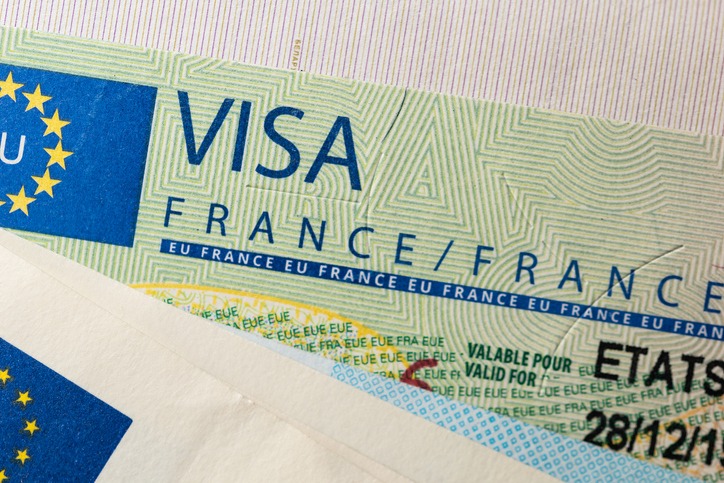
Various types of visas can be used in France in different situations.
You will need to apply for a different France Schengen Visa depending on your plan: to visit, study, work, or live in France permanently. Since France joined the Schengen Area as a member state of the European Union in 1997, you can apply for a France Visa.
- EU citizens are permitted to travel within the Schengen Zone without a visa for an unlimited period, and nationals of countries granted permission, such as Australia and Canada, to travel for 90 days without a visa.
- Russian, Chinese nationals, and from other Asian nations will need to apply for a Schengen Visa. If citizens of such countries have been granted visa-free travel for 90 days and wanted to stay longer, they must additionally get a Schengen Visa.
Disclaimer:
In mid-March 2020, France and the rest of the EU and Schengen Area nations issued an EU-wide entry ban on third-country nationals due to the Coronavirus outbreak. Based on the COVID-19 situation in other countries, entry restrictions are frequently subject to change.
Courtesy is Vital
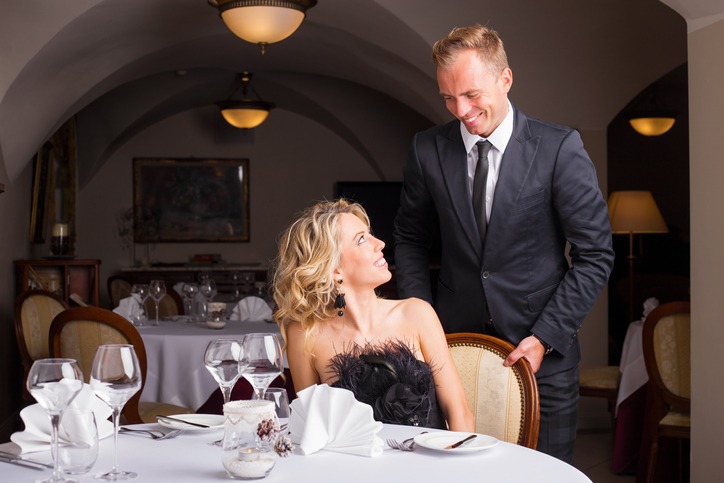
The French do not speak much English. They are very proud of their native language. In France, customers are expected to greet the shopkeeper and other visitors upon entering a store. As an ice breaker before shifting to English, a simple bonjour (Possibly the most significant term in the French lexicon) and a respectful monsieur/madame/mademoiselle will suffice.
In a restaurant setting, when you’re trying to get a server’s attention, a polite s’il Vous plaît with a subtle raised hand will do the trick when wanting to gain a server’s attention, and a merci after that is like music to their ears.
Before you travel to France, brush up on your French by learning a few phrases!
France is not just about Paris!
The country of France does not begin and stop in Paris! Too many visitors come to Paris and then declare that they’ve seen and done everything there is to see in France. France is such a diversified country, with a wide range of microclimates. More off-the-beaten-path experiences may be found in the countryside, such as at farmhouses in Burgundy, fishing villages in Brittany, beautiful communities in the Pyrenees Mountains’ forests, and golfing in Les Bordes, which is located in a calm nook of the Loire Valley. France has a myriad of tourist attractions.
When to Go?
While you can visit France at any time of the year, it’s good to know what to expect during each season.
Autumn (September-October), spring (April-May), or summer (June-August) (September-October). Springtime is pleasant, with fewer crowds and temperatures ranging from 55 to 68 degrees Fahrenheit. Autumn is still balmy, with temperatures ranging from 61 to 77 degrees Fahrenheit. Summer temperatures can reach 84°F. Unfortunately, summer is also the busiest and most expensive season. Plan a trip in the fall to take advantage of lower airfares. Autumn is still balmy, with temperatures ranging from 61 to 77 degrees Fahrenheit.
Some Additional Travelling Tips to Consider
The French Take Their Time
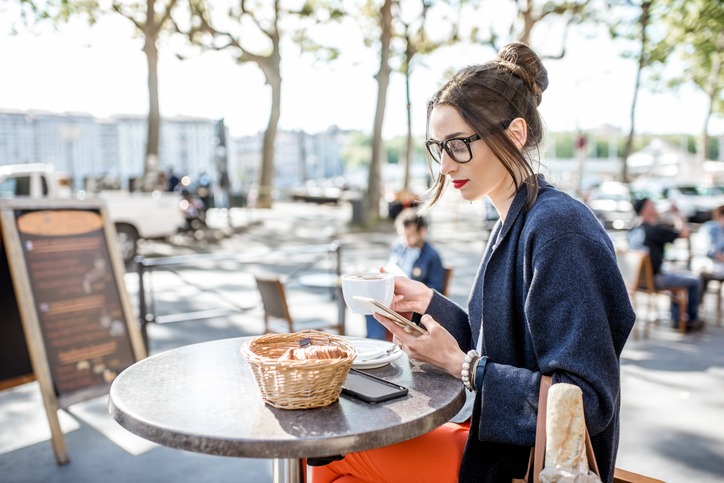
.One of the key factors to note about the French people is that they are quite calm and easy-going. While you might be in the habit of rushing as many things into a day as possible but the French are least bothered about that. As a result, you might become a bit bored and bothered about the slow pace but you have to respect that.
While strolling through the streets, you will see the French enjoying leisure meals, having a chit-chat with their friends and family members without worrying about the next big thing. It is something that is built in their culture. As a result, the stores are open for a relatively short period of time and will most probably close at lunchtime along with Sundays.
Therefore, before you visit France, make sure you go through the calendar for holidays and other special events that call for closing the shops either early or completely.
There Is No Dress Code
View this post on Instagram
France is amongst the very few countries where people do not care or judge what others are wearing. You can walk around in formal wear or simple shorts and no one will make fun of it. This means, you should wear something that is comfortable and easy to carry.
The French maybe good looking people but they hardly give any importance to what they wear on a daily basis. However, if you want to blend in with the French culture, wear something such as casual sneakers and muted or neutral colors when it comes to clothing. Be classy but not force yourself into the ongoing fashion trends.
Avoid Being a Target for the Pickpockets
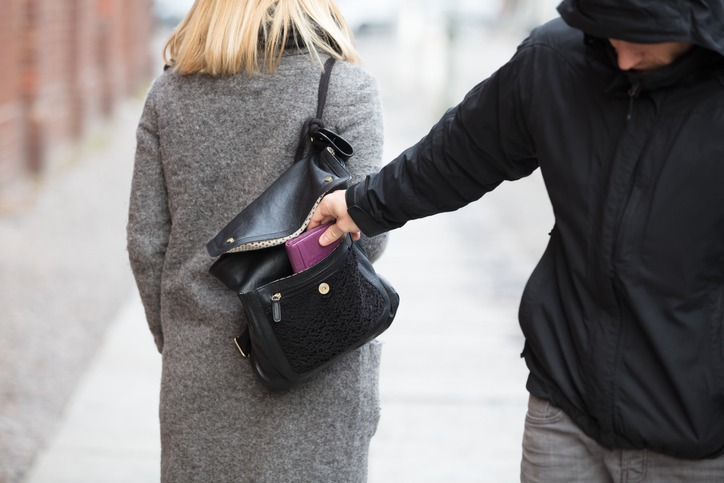
France is no doubt extremely beautiful. And while visiting cities like Paris, it is easy to get lost in the sparkling streets, shops, and malls. While that is one side of the story, pickpockets are another. Even though France has strict rules & regulations against pickpockets but it still does happen.
Major tourist attractions like the Eiffel Tower and the Sacre-Coeur are always buzzing with pickpockets. But beware if someone approaches you by offering a ring they had just found because it is nothing more than a scam. Plus, never leave your phone unattended even if you are a few inches away.
The thieves here are masters and the distractors are a part of them. To be on the safe side, make sure that you purchase an anti-theft bag that keeps your belongings secure at all times.
FAQs: Tips for Travelling in France
Here are some common questions asked about traveling in France.
1. What should I know before traveling to France?
Amongst the most important things to keep in mind at all times is that you should respect the French culture, traditions, and the way people go on about their lives. Travel off-season when the experience is going to be far better. Plus, stay away from scams and pickpockets that can easily ruin your trip by stealing important personal belongings.
2. What shouldn’t you do in France?
The French are gentle, polite, and live with principles. They are known to keep their voices low and follow a certain set of etiquette wherever they go. Therefore, part of your responsibility is that you do not talk loud, never wildly wave your hand at the waiter, and never underestimate the power of a few French phrases.
3. How do you show respect in France?
There are several ways of showing respect in France such as shaking hands with everyone present at a gathering when arriving and leaving. Plus, men in France are known to give way to women and when friends and close friends greet one another, they often kiss both cheeks.
Conclusion
Undeniably, France is one of the costliest nations to visit, and it is substantially more expensive overall than other nations. Alternatively, consider planning your trip and expenses more rigidly in advance as booking train tickets a few weeks before your trip. So, you can’t forget to splurge and indulge yourself in all of the food, wine, and beauty the country has to offer!

